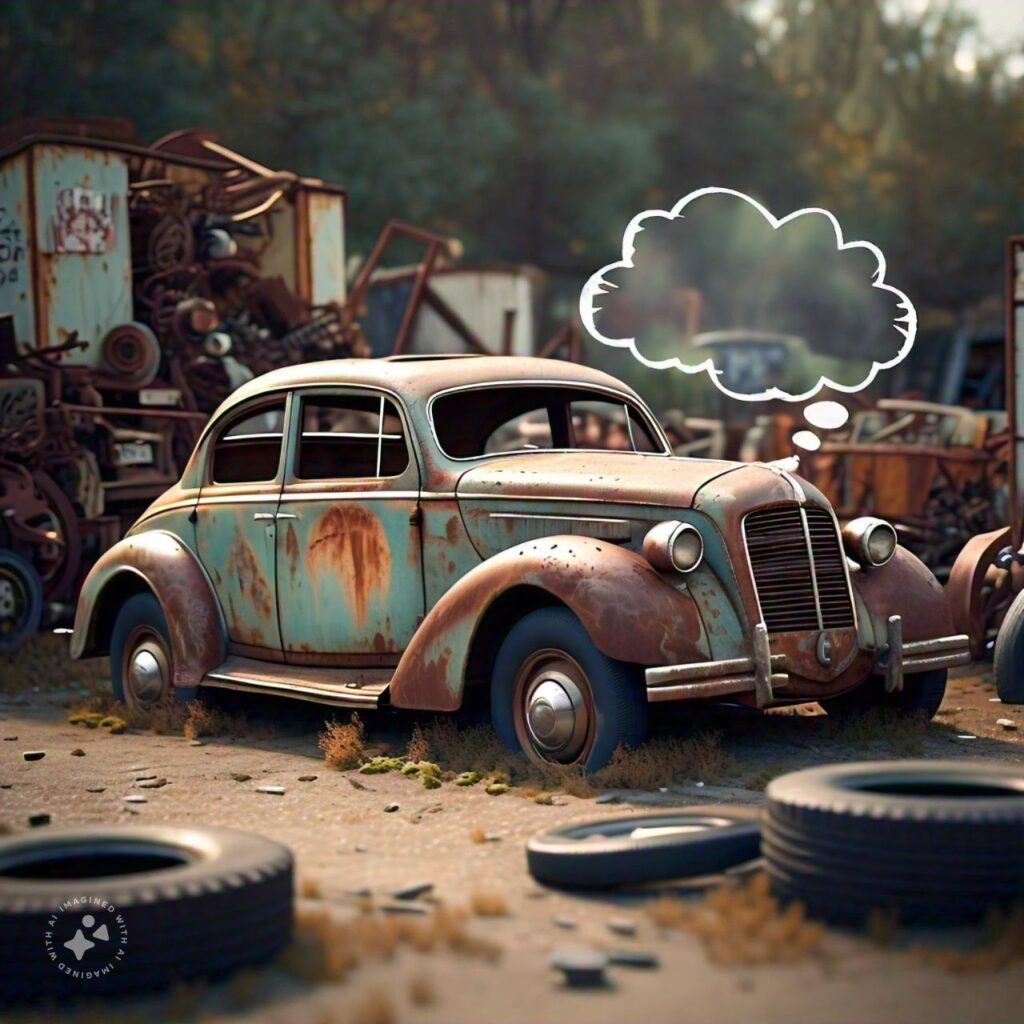
Letting go of a car can be emotionally tough. It’s more than just metal and parts; it often carries memories and stories. But when it’s time to say goodbye, understanding how junkyards assess your vehicle’s worth can help you make informed decisions.
The Sentimental vs. The Practical
It’s important to differentiate between a car’s sentimental value and its practical worth. While your old car might hold cherished memories, a junkyard evaluates it based on its potential for recycling and parts recovery.
Factors Affecting Your Car’s Value
Several key factors influence how much a junkyard will offer for your vehicle:
- Make, Model, and Year: Newer vehicles often contain more valuable parts. Older models might have less demand but could still hold scrap metal value.
- Overall Condition: The car’s physical condition, including damage, affects its potential for parts salvage. A vehicle with minimal damage is generally worth more.
- Metal Content: The type and amount of metal in the car influence its scrap metal value. Vehicles with a higher metal content tend to be more valuable to junkyards.
- Part Demand: The availability of specific parts and their current market demand can impact the value. Popular car models or parts in high demand might fetch a premium.
- Local Scrap Metal Prices: Fluctuations in scrap metal prices directly affect the overall offer.
The Junkyard’s Perspective
Junkyards operate as businesses, buying and processing vehicles to extract value from parts and scrap metal. Their primary goal is to maximize profit while minimizing costs. When evaluating your car, they consider:
- Salvageable Parts: The potential value of reusable parts, such as engines, transmissions, or body panels.
- Scrap Metal Value: The weight and type of metal in the vehicle, determining its worth as scrap.
- Disposal Costs: The cost of safely disposing of fluids, tires, and other non-recyclable components.
- Market Competition: Local competition among junkyards can influence offered prices.
Getting the Best Value
While you might have an emotional attachment to your car, understanding the factors that influence its junkyard value can help you manage expectations and potentially maximize your return.
- Research local junkyards: Compare prices and services to find the best offer.
- Prepare your vehicle: Removing personal belongings and fluids can streamline the process and potentially increase the value.
- Understand the market: Be aware of current scrap metal prices and the demand for your vehicle’s make and model.
Remember, the junkyard’s primary goal is to extract value from your car. While it might not fetch the price you’d like, it’s often the most efficient way to dispose of a vehicle that has reached the end of its life.
Ready to sell your old vehicle? Visit our Hebron junkyard location for a hassle-free process and get the best value today!
